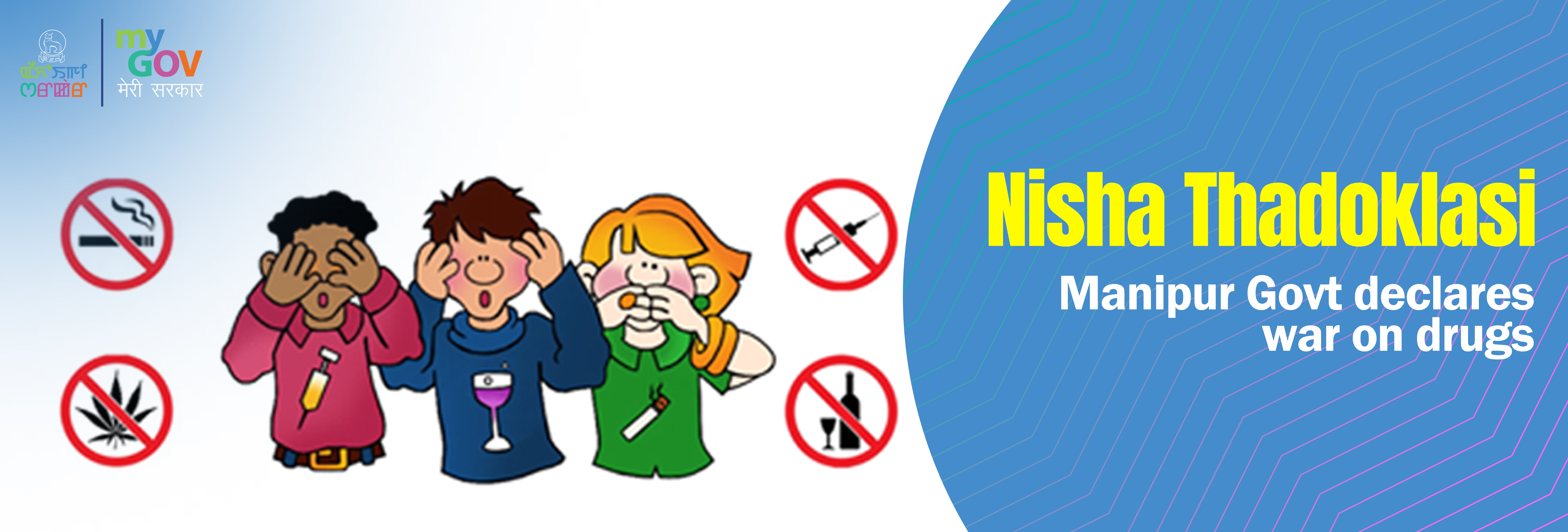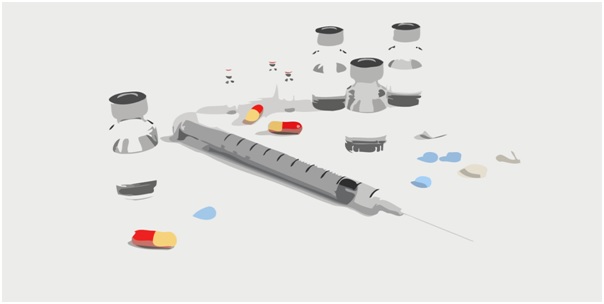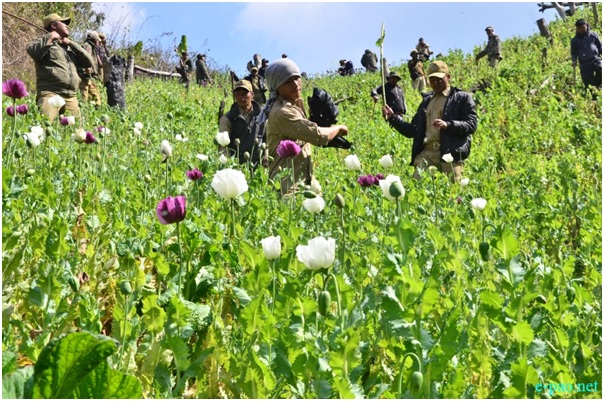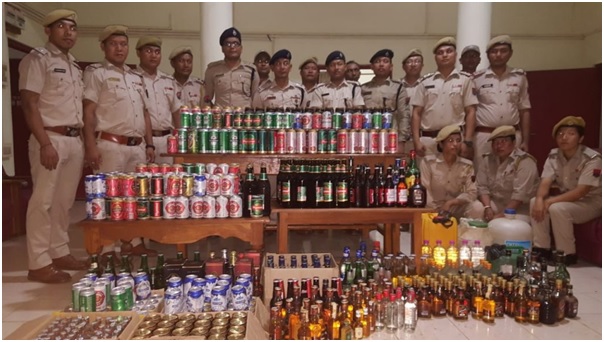“Nisha Thadoklasi”, Manipur Govt declares war on drugs

Drug trade is considered as the third largest business in the world, next to petroleum and arms trade. It has been a backdoor business of almost every country, hindering the wholesome development of a nation and destroying precious lives of resourceful youths, with drug addiction and immense human distress.
The United Nations in 1987 adopted a resolution to observe International Day against Drug Abuse and Illicit Trafficking on June 26, ‘as an expression of its determination to strengthen action and cooperation to achieve the goal of an international society free of drug abuse’.Every year since then, June 26 is observed as International Day against Drug Abuse and Illicit Trafficking. India, also observes this day every year under Narcotics Control Bureau (NCB) as the nodal agency.
A survey report conducted by National Drug Dependence Treatment Centre (NDDTC) and All India Institute of Medical Sciences (AIIMS), called ‘Magnitude of Substance Use in India, 2019’, revealed that a considerable number of people use psychoactive substances in India, and that substance use exists in all the population groups of 10-75 years of age.
The survey was conducted between December 2017 and October 2018, to document the detailed information of drug (substance) use problem in the country.It was found that alcohol is the most common psychoactive substance used by Indians, with 14.6 percent and makes up about 16 crore people in the country. After alcohol, cannabis and opioids are the next commonly used substances.The report has also listed Manipur amongst the top 10 alcohol dependent states. In Manipur scenario, the lists of substance use range from tobacco products such as paan and cigarettes to ganja (marijuana) and alcohol, Opium, SpasmoProxivon (SP), Methamphetamine (WY), Codeine cough syrup, Pseudo-Epherine among others.

Manipur being close to Golden Triangle in Southeast Asia (Laos, Myanmar and Thailand) of drug trafficking has affected drug usage and a large number of HIV cases.The engraved customs and traditions of Manipuri society also is one of the factor that the number of drug use is hesitant to go down. Ganja or Cannabis and home-made brew have been used for religious purposes since time immemorial. Raw Opium or Kanni were also widely used as a medicine during child births to subside delivery pains in ancient times.
However, Manipur government is now keen to deal drug menace in the State. In 2018, November 3, Chief Minister Shri Nongthombam Biren Singh has declared ‘War on Drugs’. He is ardent that the State Government and the security forces would strictly look into drug users and stringent action to drug peddlers.

(Image source: E-pao.net)
Accordingly, a report of Manipur Narcotics and Affairs of Border (NAB) department reveals that 963 drug traffickers were arrested including 768 men and 195 women under the Narcotic Drugs and Psychotropic Substances (NDPS) Act from April 27 till June 2019. It also revealed that around 3,716 acres of illegal poppy plantation and 5.51 acres of ganja were destroyed as part of war on drugs. This when calculated in terms of money would have cost around Rs. 260 crore.The destruction drive is mostly conducted by joint teams of Manipur Police, Assam Rifles and Narcotics Department and at times various civil society organisations, student unions also take part in the drives.
In a major haul for the State, on June 29, 2019, NAB with police team busted a brown sugar factory at Lilong in Thoubal district, worth Rs. 100 crore in international market. For this the State Government had on July 16 honoured the team in a grand manner with Rs. 10 lakhs.
The State Government also launched ‘Nisha Thadoklasi’ campaign on June 26, 2018 at the observance of ‘International Day against Drug Abuse and Illicit Trafficking’. A total of 80 schools were identified for ‘Drug Free Campus’ for which teachers and students would be given training, to thwart drug abuse and trafficking in schools.The State Government presently is focused to create a concrete ‘Manipur State Drug Policy’, which would directly and indirectly curb drug menace in the State.

(Image source: NE Now)
Besides these, MeiraPaibis or local women torch bearers of every colony, also take the lead in controlling drug use in their own level. With their strong base and strict rules, it is able to control not only drug issues but other social issues on their own.There are also other civil society organisations (CSOs) and non-governmental organisations (NGOs) working actively to promote a drug-free State. Organisations like Coalition Against Drugs and Alcohol (CADA), All Lilong Anti-Drug Association among others are some organisations working to uphold the same.





